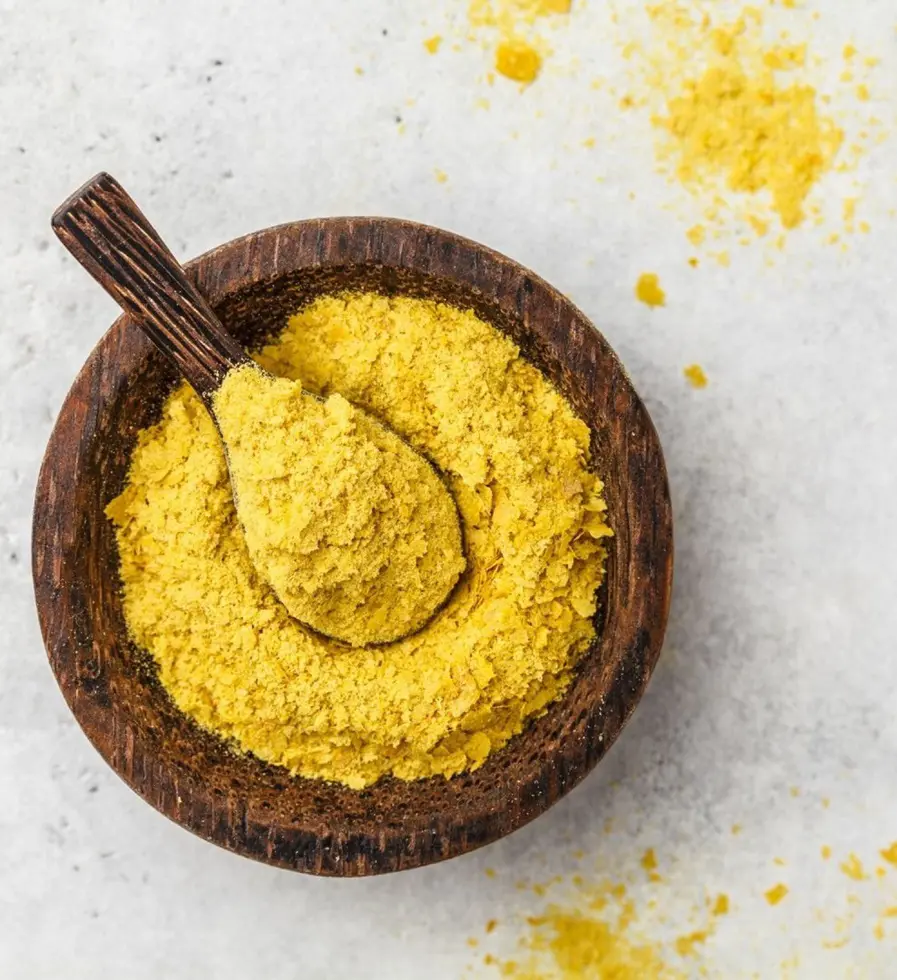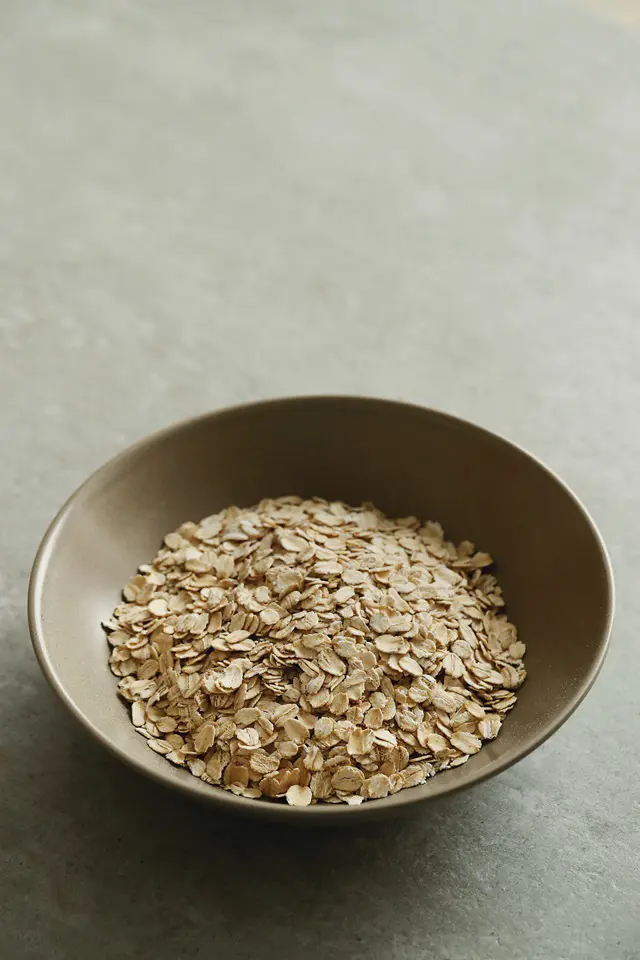20 Home Remedies For Cough
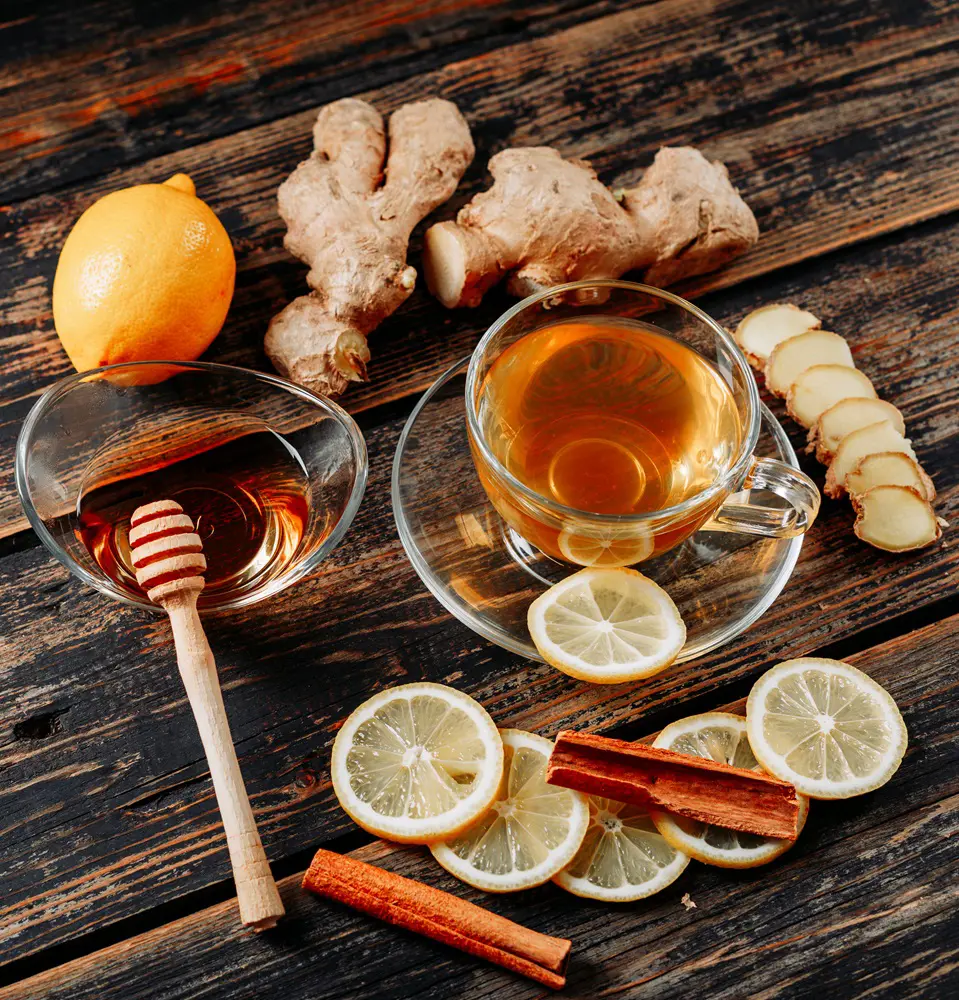
This post may contain affiliate links. If you make a purchase through links on our site, we may earn a commission.
Dealing with a cough is distressing when it becomes persistent. Many home remedies for coughs have been proven effective in managing symptoms.
From honey and lemon to ginger tea and steam inhalation, these remedies can help ease the discomfort. These remedies are invaluable when it comes to alleviating the symptoms.
1. Honey
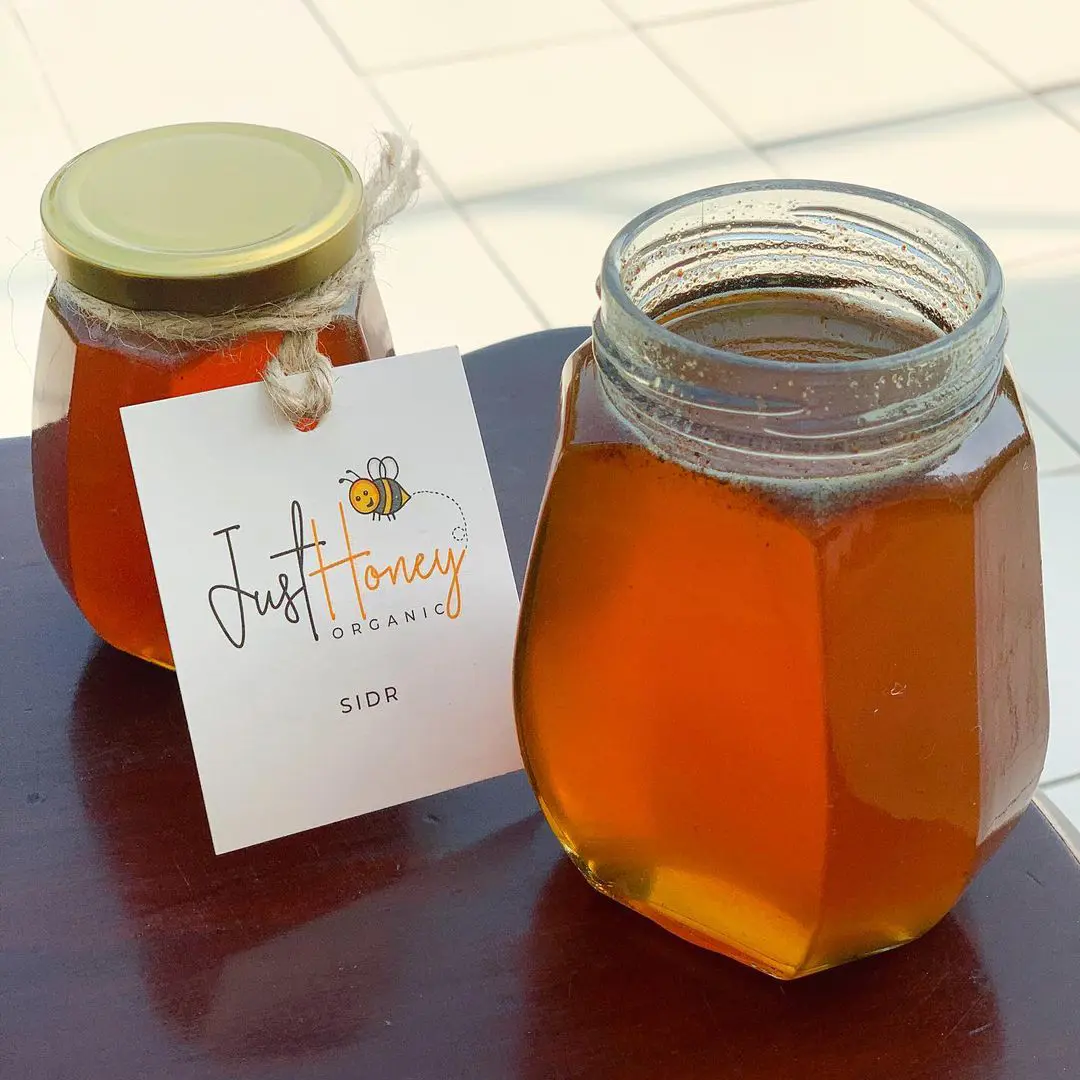
Honey has been a part of traditional medicine for coughs for centuries. The thick consistency of honey coats the throat, helping to alleviate irritation that causes coughing.
Effective as some over-the-counter cough suppressants for relieving coughs, honey also has antimicrobial properties. This prevents further respiratory tract infections. Honey also has antioxidants that boost the immune system, helpful in minimizing the severity.
2. Ginger Tea
Ginger is an aromatic root used in traditional medicine systems, such as Ayurveda and Traditional Chinese Medicine, due to its warming effects and therapeutic benefits.
Consuming warm ginger tea can relax the respiratory system and alleviate cough-related discomfort. The anti-inflammatory properties of ginger can further reduce discomfort in a scratchy or irritated throat.
3. Bromelain-An Enzyme In Pineapples
Bromelain, the enzyme present in pineapples, is a potential natural remedy for coughs. It has enzymatic properties that help to break down the mucus build-up in the airways.
Eating fresh pineapple is the most direct way to benefit from its bromelain content. You can consume it regularly throughout the day to maintain a consistent intake of bromelain.
4. Turmeric Milk
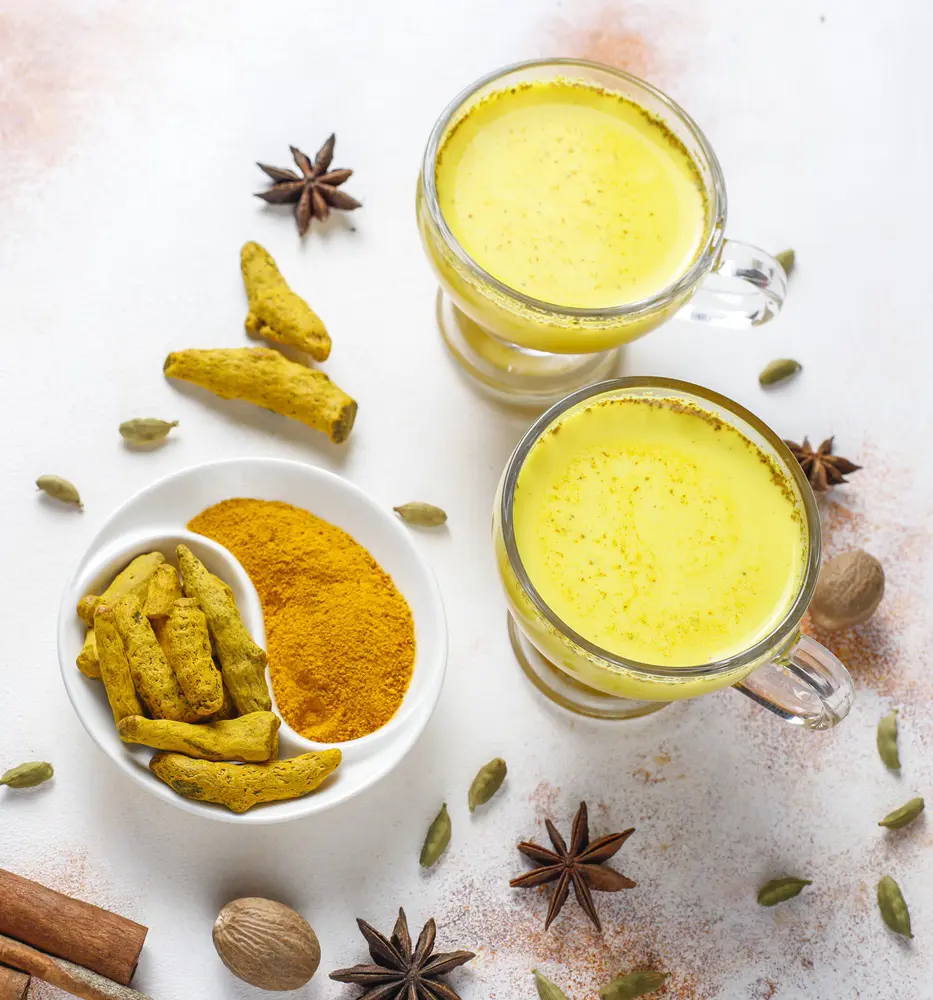
Turmeric milk is a warm beverage touted for its ability to soothe coughs and colds. The main active compounds present in turmeric, curcumin, help reduce inflammation in the respiratory tract, soothing irritation that triggers coughing fits.
When combined with warm milk, the resulting turmeric milk becomes a comforting elixir that eases the discomfort in the respiratory tract. Not everyone will like the taste of this drink, so you can add honey as the sweetener or use flavored milk such as almond or coconut milk.
5. Garlic
Garlic is also a home remedy that has been used for centuries. This pungent kitchen staple is rich in compounds like allicin which has antibacterial, antiviral, and anti-inflammatory properties, that can support respiratory health.
Inflammation in the throat and airways can contribute to coughing. Garlic's anti-inflammatory properties soothe inflammation and reduce inflammation, providing relief from the cough symptoms.
6. Thyme
Thyme is an herb that acts as a natural cough suppressant. It works by inhibiting cough reflex sensitivity, which helps in reducing the frequency and intensity of coughing episodes.
Thyme also helps to loosen and expel mucus from the lungs and respiratory tract. Its antibacterial properties help to fight bacterial infections causing cough.
7. Eucalyptus Oil
Derived from the leaves of the eucalyptus tree, eucalyptus essential oil contains compounds such as eucalyptol (or cineole), which serve as the active ingredient responsible for its therapeutic effects on the respiratory system.
This natural expectorant helps to expel mucus and phlegm out of the respiratory tract easily. As a result, affected individuals will have clear airways, facilitating smoother breathing. Its anti-inflammatory properties soothe irritated throat tissues and reduce inflammation in the bronchial tubes and its antimicrobial property prevents further infection.
8. Apple Cider Vinegar
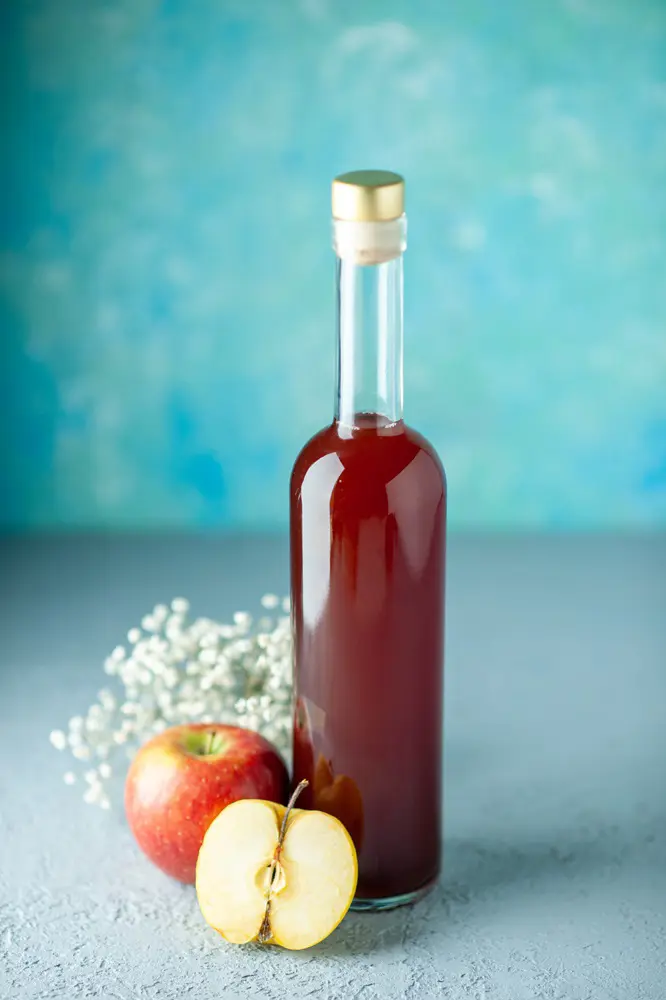
Apple cider vinegar(ACV) in diluted form can help to reduce the severity of the cough. ACV is believed to have mucus-loosening potential, causing mucus congestion. The acidic property of ACV also creates an unfavorable environment for the growth of the causative microbes in the throat.
For preparing the ACV drink, mix 1-2 tablespoons of ACV with a glass of warm water or herbal tea. You can also add honey to the mix for taste and to soothe the throat further.
9. Marshmallow Root Tea
Marshmallow root tea has been a traditional remedy for coughs and sore throats for centuries. Marshmallow root contains a high amount of mucilage, a gel-like substance, which makes it an efficient option for reducing cough and associated discomfort.
Mucilage forms a protective layer over irritated mucous membranes, hence it coats and soothes the irritated tissues in the throat. The anti-inflammatory properties of marshmallow root also further reduce throat irritation and ease coughing.
10. Licorice Root Tea
Licorice root tea is valued in traditional medicine for its soothing properties against coughs. Licorice root contains a compound called glycyrrhizin, which have cough-suppressing properties similar to some over-the-counter medications.
The protecting coat formed by the licorice roots reduces irritation of the throat and soothes dryness. This reduces the severity of the coughing fits. Inflammation in the airways is one of the factors leading to coughing, so the anti-inflammatory effects licorice roots possess could potentially reduce cough severity.
11. Hot Toddy
A hot toddy, a mix of whiskey/rum, hot water, honey, and lemon, is a classic and comforting drink popular as a home remedy for coughs. Whiskey or rum, the alcoholic ingredient of the hot toddy is believed to act as a relaxant that can help you sleep better.
It also temporarily relieves pain and discomfort associated with coughing. Honey, the key ingredient in hot toddies reduces irritation that triggers coughing and lemon juice adds a dose of vitamin C which is known to support the immune system.
12. Peppermint
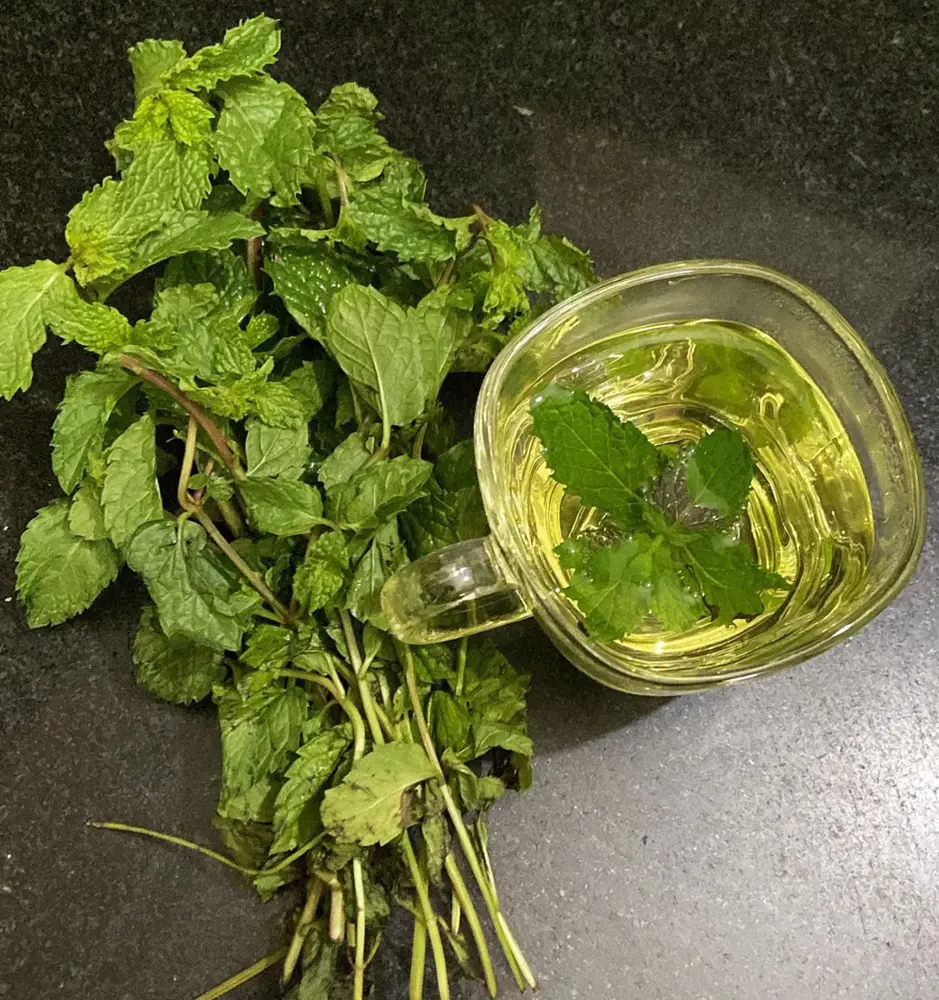
Refreshing and versatile, peppermint also helps to alleviate cough symptoms. The active compound in peppermint, menthol, is responsible for many of its therapeutic effects on the respiratory system.
The cooling sensation provided by the menthol can help soothe irritation in the throat and airways. This soothing effect can reduce the urge to cough and provide temporary relief from cough-related discomfort.
13. Lemon
One of the standout features of lemon is its high vitamin C content. Vitamin C is known to boost the immune system, which helps the body efficiently fight off infections that may cause coughs.
It also aids in the repair and regeneration of tissues, including those in the respiratory tract, speeding up recovery from respiratory illnesses. You can prepare lemon water by squeezing fresh lemon juice into warm water and drinking it as first thing in the morning.
14. Onion Syrup
Onion Syrup is prepared by simmering onion with sugar or honey and water (or herbal tea) until softened and syrupy. This syrup thus formed has both expectorant and mucolytic (mucus thinning) properties.
The compounds present in onion, allicin and quercetin, help in thinning mucus and phlegm making expectoration easier. Moreover, the antibacterial and antiviral properties of onions make them effective in fighting infections that cause coughs and respiratory illnesses.
15. Clove Tea
Clove tea is a lesser-known yet potent herbal remedy for coughs. For the preparation, whole cloves or ground cloves are added to hot water and the whole mix is boiled for about 10-15 minutes.
By drinking this tea warm several times a day, you can alleviate cough symptoms and promote respiratory comfort. Clove tea has a soothing effect on the throat due to its warmth and aromatic nature.
16. Carrot Juice
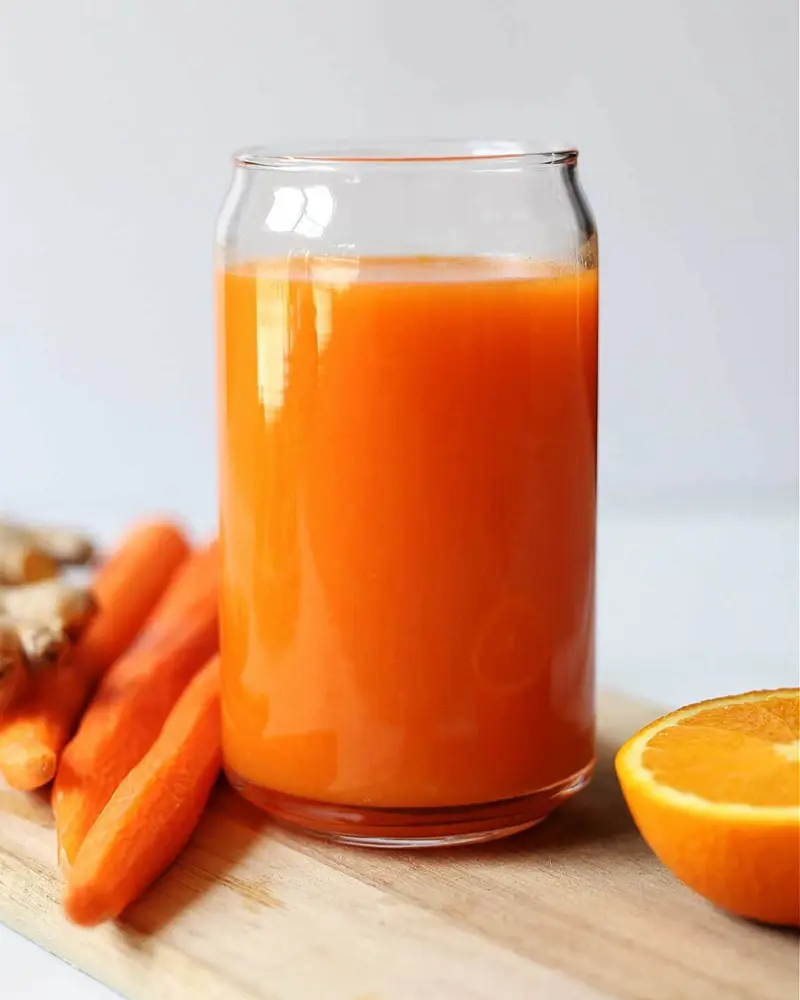
Carrot juice is a nutritious and natural remedy for coughs. Rich in vitamins, minerals, and phytonutrients, carrots offer several benefits that can aid in soothing throat irritation and promoting overall immune function.
As it is rich in fluids and electrolytes, it can also help replenish lost fluids. Carrots are a good source of vitamin C, a powerful antioxidant that supports the immune system.
17. Menthol Lozenges
Menthol lozenges provide a comforting and effective solution for coughs. The natural cooling effect on the throat and mucous membranes prevents dryness and irritation related to it.
This also provides temporary relief from scratchiness or tickling sensations in the throat. Many menthol lozenges also contain ingredients like honey or glycerin, which help lubricate the throat and provide a protective coating.
18. Saltwater Gargle
If your cough is accompanied by a sore throat, saltwater gargle can help loosen mucus and remove some irritants from the back of the throat, potentially reducing the cough reflex.
The mild saline solution acts as a natural antiseptic which helps cleanse the throat of bacteria and viruses that may contribute to cough symptoms. Gargling also helps to loosen and thin mucus in the throat and respiratory tract, making expelling mucus and phlegm easier.
19. Steam Inhalation
Steam inhalation is a time-tested home remedy for coughs and respiratory congestion. This method involves inhaling steam to moisten and soothe the throat, loosen mucus in the airways, and ease breathing difficulties.
Steam inhalation can alleviate dry coughs as it helps to hydrate dry airways and soothe irritated mucous membranes in the throat and nasal passages. It also helps to loosen the thick mucus and phlegm in the throat, reducing the severity of coughing.
20. Slippery Elm
Slippery elm is a tree native to North America, known for its medicinal properties. The inner bark of the slippery elm tree contains mucilage, a gel-like substance that becomes slippery and soothing when mixed with water.
This mucilage has several beneficial effects when used as a remedy for coughs. The mucilage from the slippery elm is highly valued for its ability to coat and soothe irritated mucous membranes in the throat and respiratory tract.
Recent posts
Lifestyle
Lifestyle
20 Best Foods For Inflammation + What To Avoid
Inflammation is an essential response that the body utilizes in the defense mechanisms against both harm and pathogens; however, if it becomes chronic, it becomes a real issue. Luckily, there are foods out there that are good for this process, more ...
Lifestyle
Nutritional Yeast Benefits, Nutrition and Uses
Often called "nooch", nutritional yeast is a deactivated form of yeast. It is often used to make vegan and dairy-free items. Various studies show that nutritional yeast possesses a range of health benefits. The mineral, vitamin, and antioxidant...
Lifestyle
Is Oatmeal Good For Weight Loss? Facts and Myths
Oatmeal has been a reputed healthy breakfast food for ages. It is derived from oats, a whole grain known for its compact nutrient profile and wide range of health benefits. Oatmeal, mostly rich in fiber, is also popular in weight loss diets. If...
Lifestyle
12 Dark Chocolate Benefits and Nutrition
Dark chocolate, a delightful treat for many is also packed with numerous health advantages. It is a nutritional powerhouse in addition to being a pleasant treat due to its rich velvety taste and remarkable collection of antioxidants. This delicious t...
Lifestyle
Is Chicken Good For Weight Loss? Ways To Eat It
When losing weight, the search for both healthy and filling foods is paramount, and chicken is usually among the best options. In addition to being rich in essential nutrients that play crucial roles in muscle management and overall body healt...
Lifestyle
Are Eggs Good For Weight Loss? Ways To Add
Eggs are loaded with protein and vitamins and therefore, they can be part of your team to help you in losing weight. Consuming eggs in your meals will give you the desired fullness and your appetite will be put under check, thus easily maintaining a...

